Intelligence Plus Character
“The function of education is to teach one to think intensively and to think critically. Intelligence plus character—that is the goal of true education.” – Martin Luther King, Jr.
Intelligence plus character—Dr. King was spot on! Yet, it’s interesting how definitions change over time. Over the past 180 years, the primary definition of intelligence has remained somewhat consistent. “The ability to acquire knowledge and skills” [Meriam-Webster]. This does not seem to be the case with the word “character.”
In Webster’s 1828 version of the American Dictionary, the definition of the word character (in reference to an individual’s actions and moral nature) is broken down in the following manner:
- Real character: The peculiar qualities, impressed by nature or habit on a person, which distinguish him from others.
- Estimated character (or reputation): The qualities which he is supposed to possess.
Of this type of character, Noah Webster stated: “A character is not formed when the person has not acquired stable and distinctive qualities.” Webster’s 1828 reveals a societal expectation (or norm) when referring to a person’s character. Sadly, this is no longer the way most people think.
Today, the basic definition of character is “the mental and moral qualities distinctive to an individual.” This post-modern definition is evidence that we are expected to create a broad space for the individualization and formation of a person’s character. We must view each person’s moral nature [character/reputation] as unique, and therefore it cannot be examined and defined within any biblical standard. Advocating a biblical standard as a basis for moral expectations and character formation is too judgmental, religiously oppressive, and is also restrictive to an individual’s inner-personal development.
The Meaning of Character
So if the meaning of “character” is now post-modernized to the point of having the ambiguity of impressionist artwork (i.e. images without details painted in bold colors), then what does true intelligence look like as it bears fruit on this post-modern tree of character? I would argue that it will no longer manifest as Dr. King suggested: True education = intense and critical thinking [intelligence] + character. Instead we will have higher learning institutions void of any true knowledge of God. We will have Government-funded studies on whether or not trees and plants have feelings like humans. Furthermore, we will have universities and colleges providing cry rooms for students who cannot deal with the real pressures of life.
We would do well to follow the examples of those who’ve not only had intelligence, but who have also exhibited true character formed by trials. The apostle Paul was highly intelligent, but was also a humble servant. He said, “But we have this treasure in earthen vessels, that the excellence of the power may be of God and not of us [godly character/moral excellence]. We are hard-pressed on every side, yet not crushed; we are perplexed, but not in despair; persecuted, but not forsaken; struck down, but not destroyed—always carrying about in the body the dying of the Lord Jesus, that the life of Jesus also may be manifested in our body” (2 Cor. 4:7-10, brackets added).
God has said that His ways are higher than our ways, and His thoughts are higher than our thoughts (Is. 55:9). When we consider Isaiah 55:9, it stands to reason that faith in God’s Word—agreeing with His thoughts and judgments—is the highest form of intellectual thought and reason. When we couple this with true character formed within the fiery trials of life, then we see God’s champions emerge.
Be one of God’s champions!
Dr. Jeff Canfield’s background and experience includes six years in the Army National Guard, eight years in municipal law enforcement, and seven years working directly with delinquent youth. Jeff has served faithfully in pastoral ministry since 1999. He is a graduate of the University of Illinois Police Training Institute, Rhema Bible College, and holds a Bachelor’s in Religious Science, a Master’s in Applied Theology, and a Doctorate in Ministry. Jeff is also the author of over fifteen books including two novels. Most importantly, he has been married since 1989 and has two grown children.




